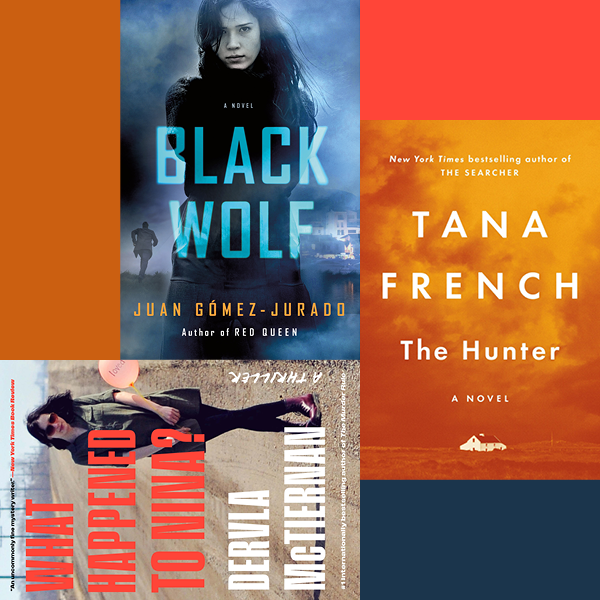The Hunter by Tana French
What Happened to Nina? by Dervla McTiernan
Black Wolf by Juan Gómez-Jurado,
translated by Nick Caistor
and Lorenza Garcia
translated by Nick Caistor
and Lorenza Garcia
Revenge seems so simple in The Princess Bride when the fencer Inigo Montoya faces down his nemesis: “Hello. My name is Inigo Montoya. You killed my father. Prepare to die.” Montoya skewers the villain in a sword fight and—despite a profusely bleeding stomach wound—fulfills his destiny.
Vengeance proves to be more complicated in these three novels, one a Spanish thriller, the other two psychological murder mysteries focused on family tragedies. Revenge is served both hot and cold, and its motivations come in every shade of gray.

